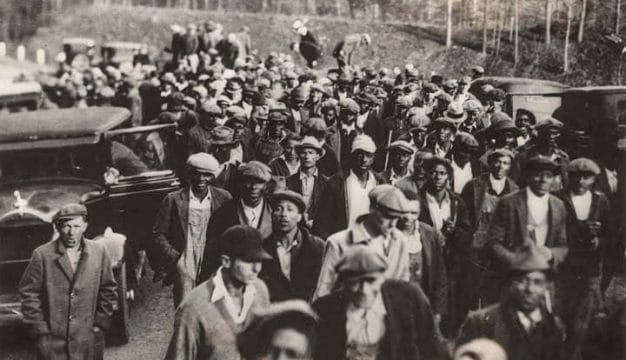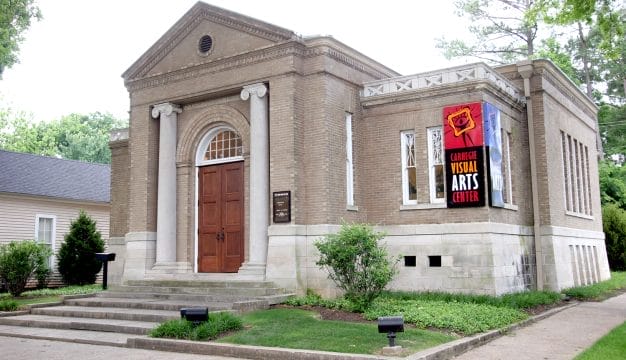Harry Gilmer
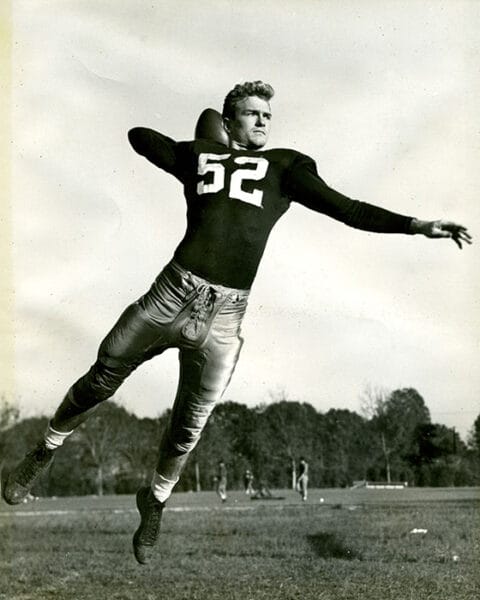 Harry Gilmer
Harry Vincent Gilmer Jr. (1926-2016), a native of Birmingham, Jefferson County, played halfback for the University of Alabama (UA) football team and went on to a become a player and coach in the National Football League (NFL). His unique “jump passing” style and dynamic scrambling ability made him one of the most famed collegiate players of his era. Gilmer was an all-American and Southeastern Conference (SEC) Player of the Year in 1945 and the MVP of the 1946 Rose Bowl. He was a finalist for the Heisman Trophy in 1945 and 1947, making him the only Alabama player considered for the award twice, and is a member of the Alabama Sports Hall of Fame and the College Football Hall of Fame. He was the first UA player to become a head coach in the NFL.
Harry Gilmer
Harry Vincent Gilmer Jr. (1926-2016), a native of Birmingham, Jefferson County, played halfback for the University of Alabama (UA) football team and went on to a become a player and coach in the National Football League (NFL). His unique “jump passing” style and dynamic scrambling ability made him one of the most famed collegiate players of his era. Gilmer was an all-American and Southeastern Conference (SEC) Player of the Year in 1945 and the MVP of the 1946 Rose Bowl. He was a finalist for the Heisman Trophy in 1945 and 1947, making him the only Alabama player considered for the award twice, and is a member of the Alabama Sports Hall of Fame and the College Football Hall of Fame. He was the first UA player to become a head coach in the NFL.
Gilmer was born on April 14, 1926, in the East Lake section of Birmingham, the son of Harry and Mattie Gilmer. He had one younger brother, William Cunningham “Billy” Gilmer. He attended Woodlawn High School in Birmingham, where he was a standout athlete in football, basketball, and baseball. In 1944, just prior to his high school graduation, Gilmer was drafted into service for World War II. During his induction physical, however, he was declared ineligible for military service because of a stomach condition that required a very limited diet. Gilmer then chose to attend UA and play football for the Crimson Tide.
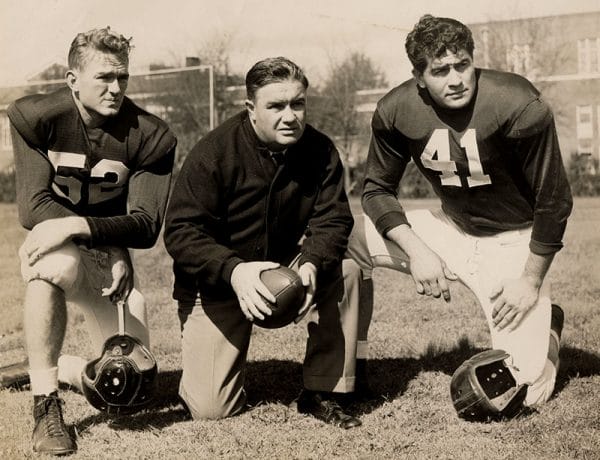 Harry Gilmer, Frank Thomas, Vaughn Mancha
Gilmer arrived in Tuscaloosa as the school was rebuilding its football program. UA had dropped football in 1943 as part of a national initiative to de-emphasize sports to aid the war effort. The team resumed play in 1944 when the SEC waived a rule that prohibited freshmen from playing with the varsity squad because so many young men were off fighting in the war. As a result, the 1944 team, under coach Frank Thomas, was made up primarily of freshmen and men who had been declared ineligible to serve in the armed forces. This group came to be known as the “war babies.” Gilmer played halfback on offense which, in Thomas’s “Notre Dame Box” scheme, was the player responsible for passing or directing the running attack. In his first game, Gilmer scored two touchdowns against Louisiana State University, including a 95-yard kickoff return that set a Crimson Tide record. When playing quarterback, Gilmer soon began to employ his unique “jump pass,” a scrambling style of play that was punctuated by a leaping throwing motion that he had developed while playing sandlot football in his teen years. Gilmer later said he used the jump pass as a way to see over his blockers as well as to position his body correctly to make the throw while running.
Harry Gilmer, Frank Thomas, Vaughn Mancha
Gilmer arrived in Tuscaloosa as the school was rebuilding its football program. UA had dropped football in 1943 as part of a national initiative to de-emphasize sports to aid the war effort. The team resumed play in 1944 when the SEC waived a rule that prohibited freshmen from playing with the varsity squad because so many young men were off fighting in the war. As a result, the 1944 team, under coach Frank Thomas, was made up primarily of freshmen and men who had been declared ineligible to serve in the armed forces. This group came to be known as the “war babies.” Gilmer played halfback on offense which, in Thomas’s “Notre Dame Box” scheme, was the player responsible for passing or directing the running attack. In his first game, Gilmer scored two touchdowns against Louisiana State University, including a 95-yard kickoff return that set a Crimson Tide record. When playing quarterback, Gilmer soon began to employ his unique “jump pass,” a scrambling style of play that was punctuated by a leaping throwing motion that he had developed while playing sandlot football in his teen years. Gilmer later said he used the jump pass as a way to see over his blockers as well as to position his body correctly to make the throw while running.
In the 1944 season, Alabama earned a 5-1-2 record and was invited to the 1945 Sugar Bowl in New Orleans for the first time. Gilmer threw eight straight completions and one touchdown pass against the heavily favored Duke University team, which was filled with much older and larger U.S. Navy trainees but lost 29-26, Afterwards, famed sportswriter Grantland Rice declared Gilmer the best college passer he had ever seen. Two months after the bowl game, Gilmer married his high-school sweetheart Katherine Jeanette Reem, with whom he would have four children.
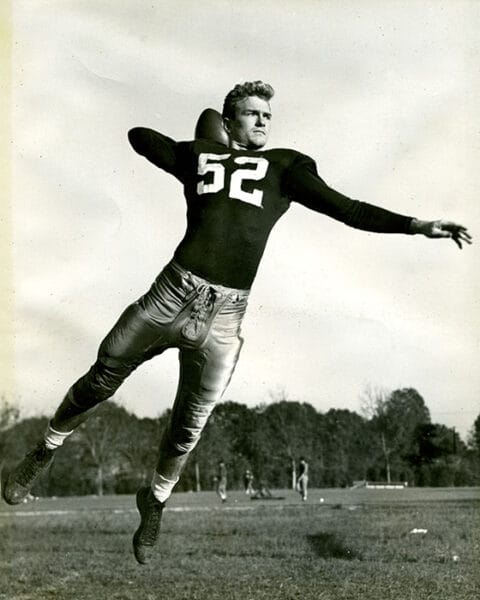 Harry Gilmer
Gilmer led Alabama to an undefeated season and an SEC Championship in 1945. His 905 passing yards, 552 rushing yards, and 22 touchdowns earned him SEC Player of the Year honors. In UA’s 34-14 Rose Bowl victory against the University of Southern California, he was named the game’s most valuable player, rushing for 116 yards and passing for 59. Gilmer came in fifth in voting for the Heisman Trophy, which went to junior Felix “Doc” Blanchard Jr., of the United States Military Academy at West Point, New York. Still, national magazines such as Collier’s, Look, and Sport published feature stories on Gilmer, with the latter putting him on the cover.
Harry Gilmer
Gilmer led Alabama to an undefeated season and an SEC Championship in 1945. His 905 passing yards, 552 rushing yards, and 22 touchdowns earned him SEC Player of the Year honors. In UA’s 34-14 Rose Bowl victory against the University of Southern California, he was named the game’s most valuable player, rushing for 116 yards and passing for 59. Gilmer came in fifth in voting for the Heisman Trophy, which went to junior Felix “Doc” Blanchard Jr., of the United States Military Academy at West Point, New York. Still, national magazines such as Collier’s, Look, and Sport published feature stories on Gilmer, with the latter putting him on the cover.
The next season, Gilmer led the nation with 497 rushing yards, eight interceptions, and 436 punt-return yards, but Alabama finished 7-4 and out of bowl contention. Thomas stepped down at the end of the year because of poor health and was replaced by his assistant Harold “Red” Drew in 1947. The team’s 8-2 record brought a second Sugar Bowl appearance. The Crimson Tide were defeated 27-7, however, by the University of Texas Longhorns, led by future NFL star quarterback Bobby Layne. Gilmer again earned consideration for the Heisman Trophy, but again he came in fifth in voting. Gilmer then became the first player to leave his cleat and hand impressions in concrete at the Walk of Fame at Denny Chimes on the UA campus. In four years at Alabama, Gilmer passed for 2,894 yards and 32 touchdowns and rushed for 1,763 yards and 32 touchdowns. While playing defense, he intercepted 16 passes, which he returned for 234 yards.
Gilmer’s success at Alabama brought him a great deal of attention from the NFL. On December 19, 1947, Gilmer was the first player selected in the NFL draft, chosen by the Washington Redskins at quarterback. His two-year contract of $15,000 annually was the highest salary for a player in the league up to that time. His professional career suffered a setback almost immediately, however. He was kicked in the leg during his first practice game in fall camp, and the injury required several operations. Thus, Gilmer only played in one game during his rookie season.
After recovering from his injury, Gilmer played primarily as a back-up quarterback to future NFL Hall-of-Famer Sammy Baugh during his eight years in Washington. His unusual passing style did not translate well to professional football, and as his time with the team continued, he was used more as an additional rushing threat. Gilmer tallied 365 yards on 100 carries in 1952. His most productive season on defense and special teams was 1951, when he had five interceptions and returned six punts for 132 yards.
In 1955, Gilmer was traded to the Detroit Lions, where he served as back-up quarterback for another future NFL Hall-of-Famer, Bobby Layne. Gilmer retired as a player in 1956. In his eight seasons as a pro, Gilmer was selected for the Pro-Bowl twice, in 1950 and 1952.
Between 1957 and 1965, Gilmer served on the coaching staffs of the Pittsburgh Steelers and the Minnesota Vikings. In 1965, he was hired as head coach of the Lions and became the first former UA player to become an NFL head coach. Gilmer’s tenure in Detroit was unimpressive, however, and after two seasons and a 10-16 record, he was fired. Lions fans pelted him with snowballs his final game as coach. In 1970, Gilmer became an assistant coach with the Atlanta Falcons and then in 1976 became the offensive coordinator for the St. Louis Cardinals. In 1982, he stepped down and began working as a scout for the Cardinals organization until his retirement in 1994.
Gilmer was inducted into the Alabama Sports Hall of Fame in 1973 and into the College Football Hall of Fame in 1993. Gilmer died on his farm in O’Fallon, Missouri, outside St. Louis, on August 20, 2016.
Additional Resources
Stone, Naylor. Coach Tommy of the Crimson Tide. Birmingham, Ala.: Vulcan Press, 1954.
Scott, Richard. Legends of Alabama Football. Champaign, Ill.: Sports Publishing, 2004.

